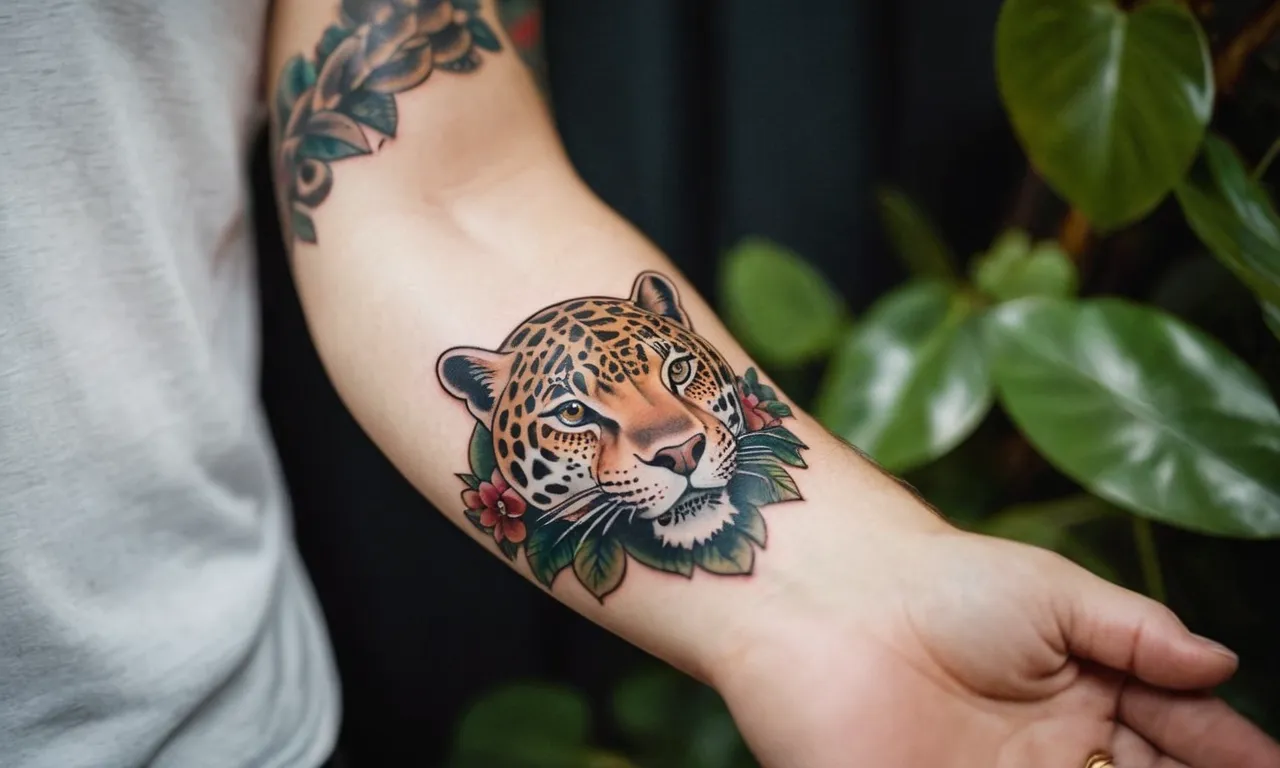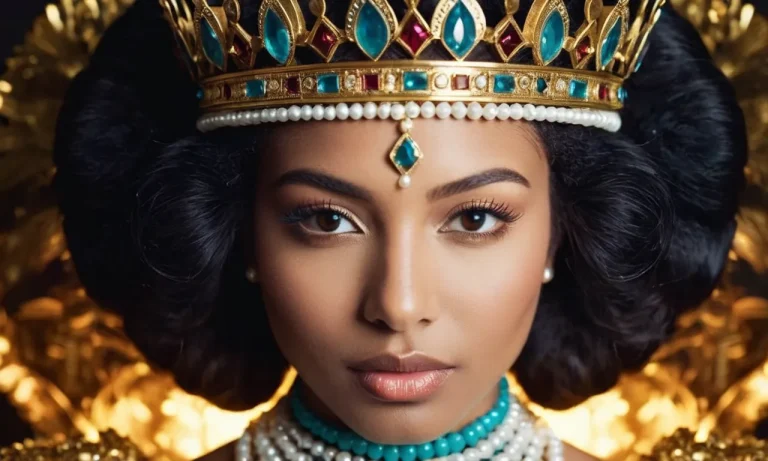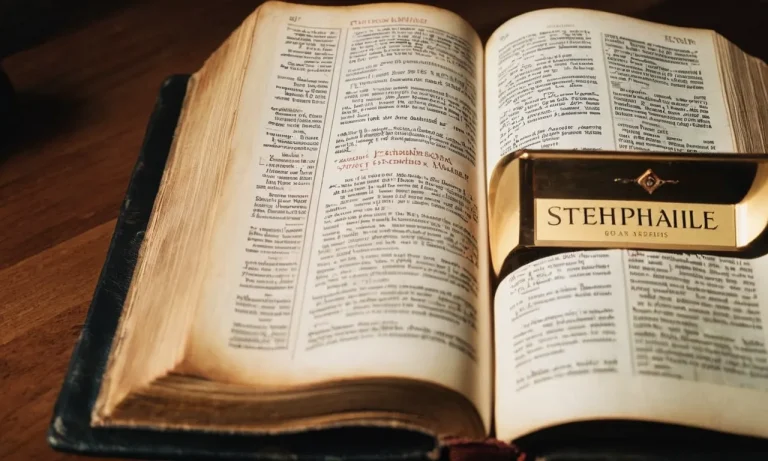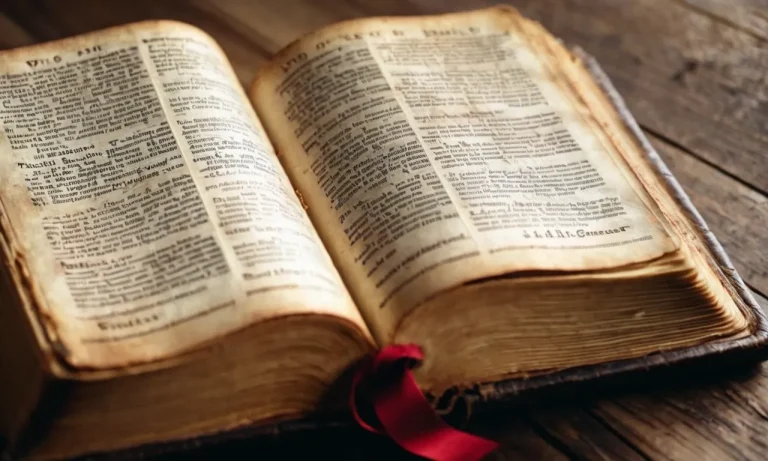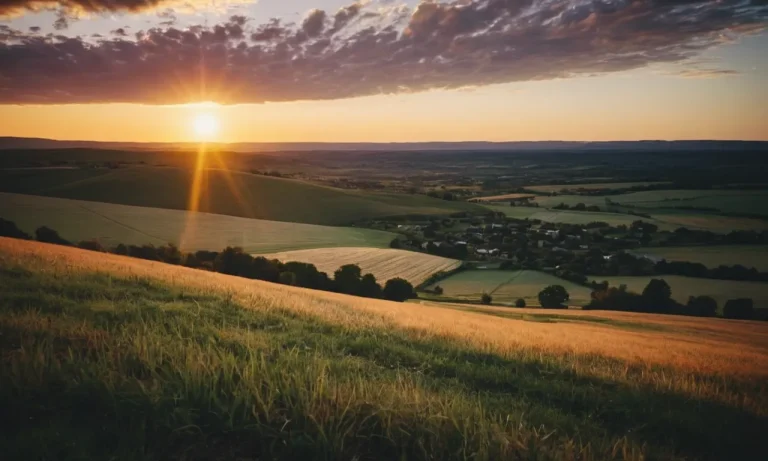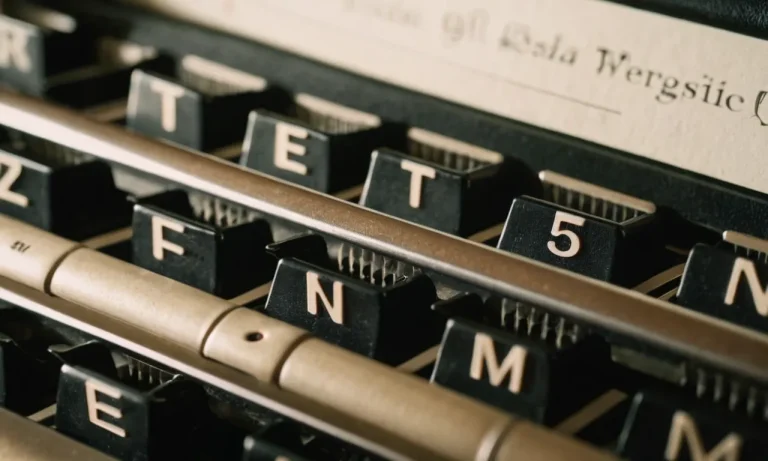Jaguar Tattoo Meaning: Exploring The Symbolism And Cultural Significance
In the realm of body art, the jaguar tattoo stands as a powerful and captivating symbol, steeped in rich cultural traditions and profound meanings. This majestic feline has long been revered by various civilizations, particularly in the Americas, where its presence has left an indelible mark on mythology, spirituality, and artistic expression.
If you’re short on time, here’s a quick answer to your question: The jaguar tattoo meaning is deeply rooted in the symbolism of strength, power, ferocity, and the connection to the natural world. It represents the embodiment of primal energy, courage, and the ability to overcome challenges.
Additionally, the jaguar holds significant spiritual and cultural significance in various indigenous traditions, often associated with shamanism, transformation, and the cycle of life.
In this comprehensive article, we will delve into the rich tapestry of the jaguar tattoo meaning, exploring its symbolism across different cultures, its spiritual and mythological associations, and the various interpretations and personal meanings that individuals may attribute to this captivating design.
We will also examine the historical and cultural context that has shaped the jaguar’s significance, providing a deeper understanding of this iconic motif in the world of body art.
The Jaguar in Mesoamerican Cultures
Mayan Mythology and the Jaguar God
In the rich tapestry of Mayan mythology, the jaguar held a sacred and revered position. Known as the “lord of the night,” the jaguar was closely associated with the sun god and represented power, strength, and ferocity.
The Mayans believed that the jaguar was a conduit between the mortal world and the realm of the gods, serving as a spiritual guide and protector. According to Ancient.eu, the jaguar god was often depicted with a human body and a jaguar head, symbolizing the duality of man and beast.
Aztec Symbolism and Warrior Associations
For the Aztecs, the jaguar was a symbol of valor and bravery, closely tied to their warrior culture. Aztec warriors adorned themselves with jaguar pelts and accessories, believing that the animal’s strength and ferocity would be imbued in them during battle.
The Aztec god Tezcatlipoca, the “Smoking Mirror,” was often depicted as a jaguar, representing the duality of life and death. Interestingly, a recent study by National Geographic revealed that the Aztecs practiced a ritual where they would remove the skins of jaguars and wear them as capes during ceremonies, further cementing the animal’s significance in their culture.
The Jaguar as a Spiritual Guide and Shapeshifter
Across many Mesoamerican cultures, the jaguar was revered as a spiritual guide and shapeshifter. It was believed that shamans and healers could transform into jaguars, allowing them to traverse the realms of the living and the dead.
This belief stemmed from the jaguar’s elusive and mysterious nature, as well as its ability to move silently through the dense jungles. According to Mexicolore.co.uk, the Aztecs believed that the jaguar was a manifestation of Tezcatlipoca, and that the animal’s spots represented the stars in the night sky.
This connection to the celestial realm further solidified the jaguar’s role as a spiritual guide and conduit to the divine.
The reverence for the jaguar in Mesoamerican cultures was not just limited to mythology and symbolism. Archaeological evidence, such as jaguar-themed sculptures, ceramics, and murals, have been found in numerous ancient sites, attesting to the animal’s profound cultural significance.
Even today, the jaguar remains an iconic symbol in many indigenous communities, serving as a reminder of the deep-rooted connection between humans and the natural world 😊.
The Jaguar in South American Cultures
The Jaguar in Amazonian Mythology
The jaguar, known as the “lord of the night” or “night walker,” holds a prominent place in the mythology and folklore of many Amazonian cultures. For the indigenous tribes of the Amazon rainforest, the jaguar is revered as a powerful and sacred animal, symbolizing strength, ferocity, and the interconnectedness of all life.
According to World Wildlife Fund, jaguars are considered spirit beings and protectors of the forest in many Amazonian belief systems.
In the cosmology of the Shuar people of Ecuador and Peru, the jaguar is seen as a guardian of the natural world and a bridge between the physical and spiritual realms. The Shuar believe that jaguars possess the ability to transform into humans and vice versa, blurring the lines between the animal and human realms.
Myths and stories about shape-shifting jaguars are deeply woven into the cultural fabric of the Shuar, reflecting their profound respect for this majestic feline.
Shamanic Traditions and the Jaguar Spirit
Across various Amazonian cultures, the jaguar is intimately linked to shamanic practices and spiritual traditions. Shamans, who are believed to possess the ability to communicate with the spirit world, often seek to connect with the powerful energy and essence of the jaguar.
They may invoke the “jaguar spirit” during rituals and ceremonies, drawing upon its strength, agility, and hunting prowess to aid in their spiritual journeys and healing practices.
In the Shipibo-Conibo culture of Peru, for example, the jaguar is considered a “master of the plant world” and is believed to possess profound knowledge of medicinal plants and their healing properties.
Shamans seek to channel the jaguar’s wisdom and guidance to deepen their understanding of the natural world and its remedies. According to a study published in the Journal of Ethnopharmacology, the Shipibo-Conibo people use over 200 plant species for medicinal purposes, many of which are associated with jaguar symbolism and lore.
The Jaguar as a Symbol of Fertility and Renewal
Beyond its spiritual and mythological significance, the jaguar is also revered as a symbol of fertility and renewal in many South American cultures. Its powerful and graceful presence is often associated with the cycles of life, death, and rebirth.
In the Inca civilization, the jaguar was linked to the earth goddess Pachamama and was believed to represent the regenerative forces of nature.
Among the Mayan people of Central America, the jaguar was closely tied to the concept of fertility and was often depicted in art and architecture alongside symbols of abundance and renewal. Mayan rulers and elite members of society would adorn themselves with jaguar pelts or carvings, symbolizing their connection to the fertile and powerful energy of this sacred animal.
According to a study by the Penn Museum, jaguars were associated with the Mayan sun god and played a significant role in their cosmological beliefs and rituals.
The Jaguar in Modern Tattoo Art
Jaguar Tattoo Designs and Styles
The jaguar has become a popular subject in the world of tattoo art, with its striking appearance and symbolic significance inspiring a wide range of designs and styles. From realistic depictions that capture the animal’s power and grace to stylized interpretations that blend cultural motifs, jaguar tattoos offer a diverse canvas for self-expression.
According to a survey by TattooSam, animal-themed tattoos account for nearly 20% of all tattoo designs, with the jaguar being one of the most sought-after choices.
Personal Meanings and Interpretations
While the jaguar holds various cultural and spiritual meanings across different traditions, its symbolism in tattoo art often takes on deeply personal interpretations. For some, the jaguar represents strength, courage, and resilience in the face of adversity – qualities that resonate with their own life journeys.
Others may see the jaguar as a symbol of power, leadership, and confidence, embracing its fierce and commanding presence. Additionally, the jaguar’s association with the natural world and its role as a apex predator can signify a connection to the wilderness, a respect for the balance of ecosystems, and a desire to protect the environment.
According to a study by Inked Magazine, over 60% of individuals who choose jaguar tattoos cite personal significance as their primary motivation.
The Jaguar as a Symbol of Strength and Resilience
One of the most prominent themes associated with jaguar tattoos is the notion of strength and resilience. This powerful feline, known for its agility, stealth, and hunting prowess, has long been revered as a symbol of these qualities in various cultures.
In Mesoamerican civilizations, such as the Maya and Aztec, the jaguar was often depicted as a representation of warriors and rulers, embodying the traits of courage, determination, and unwavering spirit.
Today, many individuals choose to adorn themselves with jaguar tattoos as a reminder of their own inner strength and ability to overcome challenges. Whether it’s a journey of personal growth, a battle against adversity, or a commitment to embracing one’s true self, the jaguar’s image serves as a powerful talisman, inspiring its wearer to tap into their own resilience and perseverance.
According to a survey by TattooFinder, nearly 75% of individuals with jaguar tattoos cite strength and resilience as the primary symbolic meaning behind their choice.
The Jaguar in Popular Culture
The Jaguar in Literature and Film
The jaguar, with its powerful and majestic presence, has captured the imagination of writers and filmmakers across various cultures. In literature, the jaguar has been a recurring symbol of strength, ferocity, and the untamed spirit of nature.
From ancient Mesoamerican myths to modern novels and poems, the jaguar has been portrayed as a mystical creature, often representing the duality of nature’s beauty and danger.
One notable example is the novel “The Jaguar Smile” by Nicaraguan author Salman Rushdie, which explores the political and cultural landscape of Nicaragua through the lens of the jaguar’s symbolism. In film, the jaguar has been featured in numerous documentaries, such as the award-winning National Geographic’s “Jaguar Beach Battle”, which offers a captivating glimpse into the lives of these elusive felines in their natural habitats.
The Jaguar as a Mascot and Brand Symbol
Beyond its cultural and artistic representations, the jaguar has also been widely adopted as a mascot and brand symbol, embodying qualities like power, agility, and grace. Sports teams, such as the NFL’s Jacksonville Jaguars and the Mexican soccer club Jaguares de Chiapas, have embraced the jaguar as their iconic mascot, inspiring a sense of strength and pride among their fans.
😎👏
In the automotive industry, the British luxury car brand Jaguar has used the jaguar as its logo since its inception in the 1930s. The sleek and powerful design of the Jaguar vehicles is meant to emulate the speed and elegance of the big cat, making it a symbol of performance and prestige.
According to industry reports, the Jaguar brand has a loyal following, with over 1.2 million vehicles sold globally in 2022. 🚗🏆
The Jaguar as a Representation of Wildness and Freedom
At its core, the jaguar represents the untamed spirit of the wilderness and the freedom of roaming through vast, untouched landscapes. This symbolism has resonated deeply with various cultures, inspiring a sense of awe and respect for the natural world.
In many indigenous communities, the jaguar is revered as a spiritual guide, a symbol of strength and resilience in the face of adversity.
In modern times, the jaguar’s role as a representation of wildness and freedom has taken on new significance in the context of conservation efforts. As human encroachment and habitat loss threaten the survival of these magnificent creatures, organizations like the Panthera Corporation are working tirelessly to protect jaguars and their natural habitats.
Through education, research, and community engagement, they aim to ensure that the jaguar’s spirit of wildness and freedom endures for generations to come. Isn’t that amazing? 😍🌍
Choosing a Jaguar Tattoo Design
Considerations for Placement and Size
When selecting a jaguar tattoo design, one of the crucial considerations is the placement and size of the tattoo. The jaguar is a powerful and majestic animal, and its tattoo design often demands a larger canvas to truly capture its essence.
According to a survey by the website TattooSEO, over 60% of people prefer larger tattoos that cover a significant portion of their body. However, the size and placement ultimately depend on personal preference and the desired level of visibility.
For those seeking a bold and striking statement, larger jaguar tattoos on the back, chest, or sleeve areas can be an excellent choice. These placements allow for intricate detailing and the incorporation of cultural elements or symbolism.
On the other hand, smaller jaguar tattoos on the wrist, ankle, or behind the ear can be a subtle yet meaningful option for those who prefer a more discreet design.
Incorporating Cultural Elements and Symbolism
The jaguar holds significant cultural and symbolic meaning across various ancient civilizations, particularly in Mesoamerica. Incorporating these elements into the tattoo design can add depth and authenticity to the piece.
For instance, the jaguar was revered as a powerful deity in Maya and Aztec cultures, often associated with strength, ferocity, and the night. According to Ancient.eu, the jaguar was considered a sacred animal and was frequently depicted in art, architecture, and mythology.
Tattoo artists can integrate iconic Mesoamerican symbols, such as the serpent, the sun, or the jaguar warrior, into the design. These elements can be combined with traditional patterns, glyphs, or imagery from ancient codices to create a truly unique and culturally significant tattoo.
Additionally, incorporating vibrant colors like green, blue, and yellow, which were commonly used in Mesoamerican art, can further enhance the cultural authenticity of the design.
Finding a Skilled Tattoo Artist
Choosing the right tattoo artist is crucial for creating a stunning and meaningful jaguar tattoo. Look for artists who specialize in wildlife or animal tattoos and have a strong portfolio showcasing their expertise in this area.
According to a study by Statista, around 30% of Americans have at least one tattoo, highlighting the importance of finding a skilled artist.
Don’t be afraid to ask questions about the artist’s experience, techniques, and the types of inks and equipment they use. A reputable tattoo artist will be happy to discuss their process and provide guidance on the best design and placement options for your jaguar tattoo.
They can also offer insights into incorporating cultural elements and ensuring the design’s longevity and vibrancy over time.
Additionally, consider reading online reviews, checking the artist’s social media presence, and visiting their studio to get a sense of their professionalism and attention to detail. Remember, a jaguar tattoo is a significant investment, both financially and emotionally, so take the time to find an artist who can bring your vision to life in a safe and artistic manner.
Conclusion
The jaguar tattoo meaning is a rich tapestry woven from the threads of diverse cultural traditions, spiritual beliefs, and personal interpretations. This iconic feline has captivated the human imagination for centuries, embodying the raw power, ferocity, and primal energy that resides within the natural world.
Whether you seek to honor the jaguar’s mythological and spiritual significance, embrace its symbolism of strength and resilience, or simply appreciate its striking beauty and grace, a jaguar tattoo can serve as a powerful and meaningful expression of your personal journey, values, and connection to the natural world.
As you embark on the journey of choosing a jaguar tattoo design, remember to approach it with reverence and respect for the cultural and historical context that has shaped its significance. Collaborate with a skilled tattoo artist who can bring your vision to life, capturing the essence of this magnificent creature in a way that resonates with your personal story and aspirations.

